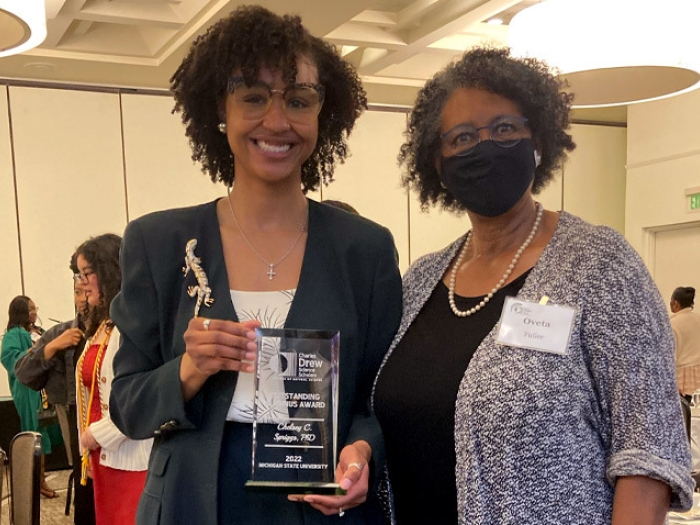Relief for those facing illness or stress can be found through a U-M audio series that uses breathing and visualization exercises to center the mind.
12:42 PM

Calm and low, Claire Casselman's voice is rich, reassuring and full of depth.
Such tones are perfect for guided imagery, a technique that combines visualization with breathing exercises to foster relaxation, a sense of empowerment and positive changes for well-being.
"Once you've learned how to use imagery to clarify your goals, you can think of it as part of your tool kit for coping — whether it's with cancer or some other challenge," says Casselman, a social worker and case manager at the University of Michigan's Comprehensive Cancer Center.
Most people, she notes, already use some form of guided imagery, such as periodic daydreaming or simply thinking about a tasty meal while preparing it.
Our goal is to show people that they are capable of achieving a peaceful calm — of controlling more of the situation and outcomes.Claire Casselman
Many, too, call upon the concept in tougher times.
"It's a skill we use to help us get through an uncomfortable moment," Casselman says. "With guided imagery, we focus on that skill and build an intention into our visualization to help us get to where we want to be emotionally."
Although the practice is mental, not physical, it offers tangible benefits. Guided imagery has been shown to lower blood pressure, decrease stress hormones, help with chronic pain, enhance sleep, lessen side effects, boost the immune system and improve surgical recovery.
Which is why Casselman's podcast library features an introduction to the concept of guided imagery as well as an index of programs whose topics range from anxiety to fatigue to pain management.
Some episodes have target audiences, such as caregivers or those preparing to receive treatment. The podcasts have been designed for people facing cancer, but each recording is broad enough to appeal to listeners at all stages of life and in all circumstances.
"Our goal is to show people that they are capable of achieving a peaceful calm — of controlling more of the situation and outcomes," Casselman says. "It's empowering."

Explore a variety of health care news & stories by visiting the Health Lab home page for more articles.

Department of Communication at Michigan Medicine
Want top health & research news weekly? Sign up for Health Lab’s newsletters today!





